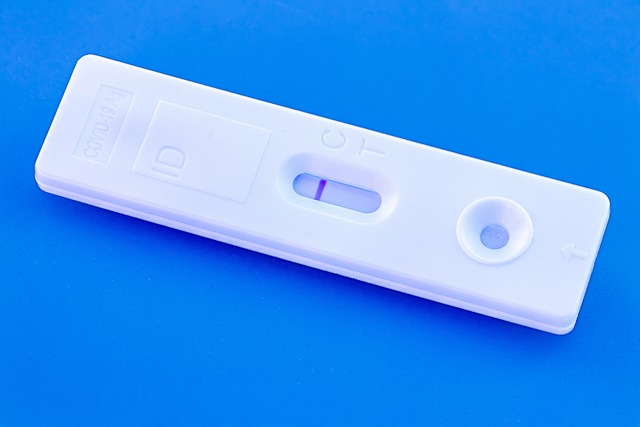Cholesterol blood tests are vital for maintaining heart health by detecting high LDL ('bad') cholesterol levels that contribute to artery plaque buildup (atherosclerosis). Early detection allows individuals to make lifestyle changes or consider medical interventions, significantly reducing the risk of heart attacks and strokes. Regular monitoring, following best practices like fasting and using accredited labs, provides a comprehensive understanding of cardiovascular risk over time.
“Maintaining heart health starts with understanding the silent indicator—cholesterol. This essential lipid plays a critical role in cardiovascular well-being, and monitoring it through regular cholesterol blood tests can be life-saving. Early detection is key to preventing heart concerns, and these tests offer invaluable insights into managing your health.
In this article, we’ll explore why ‘cholesterol blood test’ is an essential practice, delving into the benefits of routine checks and best practices for accurate results.”
- Understanding Cholesterol: The Silent Indicator of Heart Health
- The Importance of Regular Cholesterol Blood Tests
- Early Detection: Unlocking the Power of Cholesterol Monitoring
- Ensuring Accurate Results: Best Practices for Blood Testing
Understanding Cholesterol: The Silent Indicator of Heart Health
Cholesterol, often considered a villain in heart health narratives, is actually an essential component of our bodies. It plays a crucial role in building cell membranes and producing hormones. However, it’s the type of cholesterol that can become problematic. There are two primary forms: LDL (low-density lipoprotein), commonly known as ‘bad’ cholesterol, and HDL (high-density lipoprotein), or ‘good’ cholesterol. An elevated level of LDL cholesterol can lead to plaque buildup in arteries, a condition known as atherosclerosis, which increases the risk of heart attacks and strokes. Regularly monitoring cholesterol levels through a cholesterol blood test is, therefore, a powerful tool for early detection and prevention.
Understanding your cholesterol numbers enables proactive measures to maintain heart health. A simple cholesterol blood test can reveal whether your levels are within a healthy range. This information empowers individuals to make informed decisions about their lifestyle, including diet, exercise, and potentially medication, to keep cholesterol in check and reduce the risk of cardiovascular issues.
The Importance of Regular Cholesterol Blood Tests
Maintaining a healthy cardiovascular system is paramount, and one of the most effective tools in this regard is the cholesterol blood test. Regularly checking your cholesterol levels can provide invaluable insights into your heart health. It’s a simple yet powerful process that allows for early detection of potential issues.
Cholesterol blood tests are essential as they help identify high cholesterol, a significant risk factor for various heart conditions. By assessing bad LDL cholesterol and good HDL cholesterol levels, individuals can take proactive measures to manage their cardiovascular health. This proactive approach enables people to make necessary lifestyle changes or consider medical interventions at an early stage, thus significantly reducing the likelihood of developing serious heart problems in the future.
Early Detection: Unlocking the Power of Cholesterol Monitoring
Early Detection: Unlocking the Power of Cholesterol Monitoring
In today’s digital era, the importance of regular cholesterol blood tests cannot be overstated. These tests serve as a crucial tool in unlocking the power of early detection for heart concerns. By monitoring cholesterol levels, individuals can gain valuable insights into their cardiovascular health and take proactive measures to mitigate potential risks. A simple cholesterol blood test enables healthcare professionals to assess the presence of harmful LDL (low-density lipoprotein) cholesterol and high levels of triglycerides, which are known contributors to heart disease and stroke.
Proactive management through regular testing allows for timely interventions, such as lifestyle changes or medication adjustments. This early action can significantly reduce the likelihood of developing serious cardiac conditions later in life. In light of the bustling modern lifestyle, where dietary choices and stress levels often impact cholesterol levels, scheduling periodic cholesterol blood tests is a smart step towards ensuring optimal heart health.
Ensuring Accurate Results: Best Practices for Blood Testing
Ensuring accurate results from a cholesterol blood test is paramount for early heart concern detection. To get reliable readings, it’s essential to follow best practices. For instance, fasting for at least 8 hours before the test can significantly reduce the influence of recent meals on cholesterol levels. Additionally, consistent timing—ideally in the morning—ensures comparability across tests. Proper handling and storage of samples are also critical; keep them refrigerated and follow transportation guidelines to maintain integrity.
Using accredited labs further enhances accuracy by ensuring they adhere to quality control measures and use validated methods. Moreover, consulting with a healthcare provider before and after testing can help interpret results correctly. Remember, a single test is just a snapshot; regular monitoring over time provides a more comprehensive understanding of cholesterol levels and heart health risk.
Secure cholesterol blood tests are a powerful tool in early heart concern detection. By understanding cholesterol as a silent indicator of heart health and adhering to best practices for accurate results, individuals can unlock the benefits of proactive monitoring. Regular cholesterol blood tests play a pivotal role in navigating heart health, enabling folks to take charge and make informed decisions for a healthier future.
